May 29, 2015
London firms focus on wellbeing and agile working to attract staff
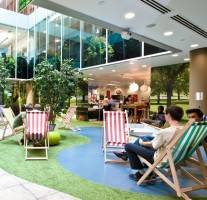 An additional 5.1m sq. ft. of office space will be required by 2019 to accommodate the growth of professional services firms in London, claims new research from CBRE. According to the studio, firms will also adopt more pragmatic workplace strategies that focus on agile working and wellbeing to meet their objectives. Nearly all (92 percent) of the respondents to CBRE’s Professional London survey claim they use the workplace to enhance employee satisfaction and 83 percent of firms use it to control costs. Firms are also placing more emphasis on wellbeing and more agile and intensive ways of using space, according to CBRE. Other factors such as technology and the design of the workplace are also increasingly important. The research suggests that staff are increasingly attracted by on-site amenities, connectivity and location and other ‘lifestyle offerings’.
An additional 5.1m sq. ft. of office space will be required by 2019 to accommodate the growth of professional services firms in London, claims new research from CBRE. According to the studio, firms will also adopt more pragmatic workplace strategies that focus on agile working and wellbeing to meet their objectives. Nearly all (92 percent) of the respondents to CBRE’s Professional London survey claim they use the workplace to enhance employee satisfaction and 83 percent of firms use it to control costs. Firms are also placing more emphasis on wellbeing and more agile and intensive ways of using space, according to CBRE. Other factors such as technology and the design of the workplace are also increasingly important. The research suggests that staff are increasingly attracted by on-site amenities, connectivity and location and other ‘lifestyle offerings’.







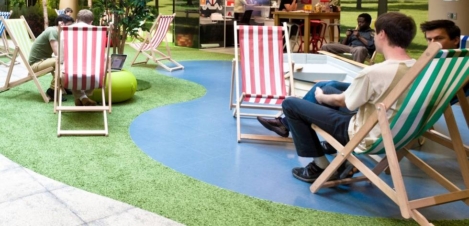




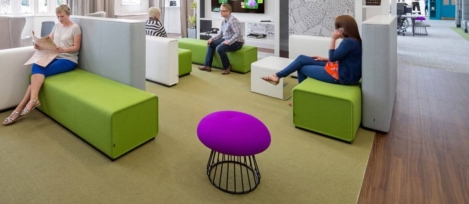



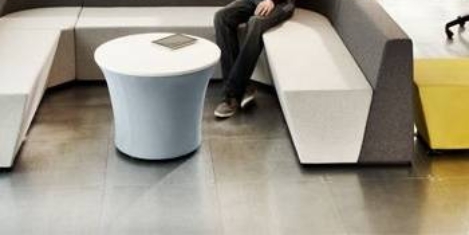
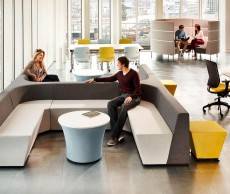

 Lately I’ve seen many articles about sit stand workstations and references to Scandinavia where almost all of us employees have access to sit stand workstations. It is true that most of the Scandinavian employees have access to sit stand workstations and in for example in Denmark employers are required by law to provide sit stand workstations to the employees, but this does unfortunately not automatically mean that the Scandinavian employees actually stand by the workstations. Even though most of us actually know that sitting is bad for our health, wellbeing and even our performance, we tend to sit most of the time while working. It is mostly about us being used to sit while working. It is a habitual behaviour and instead we need to get new habits of standing and moving at work. Change management is needed.
Lately I’ve seen many articles about sit stand workstations and references to Scandinavia where almost all of us employees have access to sit stand workstations. It is true that most of the Scandinavian employees have access to sit stand workstations and in for example in Denmark employers are required by law to provide sit stand workstations to the employees, but this does unfortunately not automatically mean that the Scandinavian employees actually stand by the workstations. Even though most of us actually know that sitting is bad for our health, wellbeing and even our performance, we tend to sit most of the time while working. It is mostly about us being used to sit while working. It is a habitual behaviour and instead we need to get new habits of standing and moving at work. Change management is needed.
 The complete Work&Place archive is now available for you online, with each issue in two formats. PDF and digital editions offer you a choice of how to access the thoughts of some of the world’s greatest practitioners and writers on workplaces, commercial property, urbanisation, technology and all of the key forces driving developments in the built environment. Each of the issues so far also offers you an international perspective which means not only do they offer an insight into the forces that shape workplace thinking worldwide, they also create a unique perspective on how national approaches are shaped by local forces related to legislation, the economy, environment, culture and business practice. Work&Place is now published quarterly with the next issue set for July 2015. It will continue to create an era defining body of work about the rapidly changing world of work and workplaces.
The complete Work&Place archive is now available for you online, with each issue in two formats. PDF and digital editions offer you a choice of how to access the thoughts of some of the world’s greatest practitioners and writers on workplaces, commercial property, urbanisation, technology and all of the key forces driving developments in the built environment. Each of the issues so far also offers you an international perspective which means not only do they offer an insight into the forces that shape workplace thinking worldwide, they also create a unique perspective on how national approaches are shaped by local forces related to legislation, the economy, environment, culture and business practice. Work&Place is now published quarterly with the next issue set for July 2015. It will continue to create an era defining body of work about the rapidly changing world of work and workplaces.










May 29, 2015
Everything you wanted to know about open plan but were too distracted to ask
by Maciej Markowski • Comment, Facilities management, Work&Place, Workplace design
(more…)